Nigerian development tragedy, the affliction of image deficit and the way out
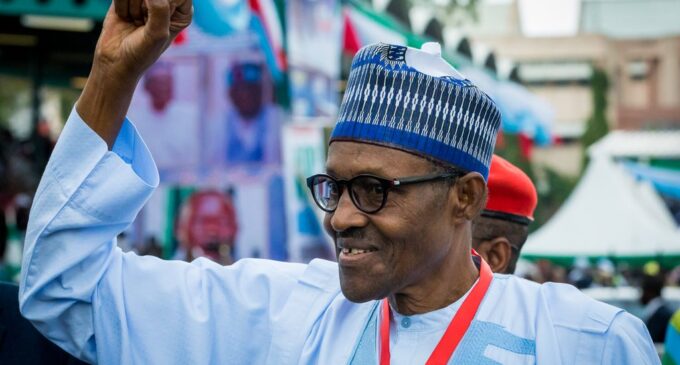
As headlines heralding horrific events like persistent gruesome murders of civilians by herdsmen militia; unending suicide bombing by religious insurgents like Boko Haram; and mind boggling sums of public funds looted by corrupt public officials in Nigeria compete for global attention on a daily basis, our dear country seems doomed to remain mired in negative publicity.
That’s because no day goes by without the above listed tragedies and calamities happening in Nigeria, and that makes the malady of negative perception from abroad self inflicted.
From the religion induced Boko Haram suicide bombings which reared its ugly head about ten years ago in the north east, to the currently raging herdsmen killings in the Sahel and middle belt, Nigeria seems to literally be on fire.
Worst still, allegations of corruption have been ratcheted up by politicians from governors, council chairmen and councilors, commissioners at state level and ministers of the federal govt to our legislators who are not only labeled corrupt, but their leaders such as the Senate president is now being tagged an armed robber. Consequently,Nigeria has become a theatre of the absurd and the laughing stock of the world.
Although all of the negative activities earlier highlighted are believed to be driven by politics and politicians who are engaged in power contestations, the Nigerian nation and the critical mass of the citizens who are not involved in politics are bearing the brunt of the mess being made by politicians.
This is because the dirt and murk that politicians rake up and heap on each other just to look better than their opponents is so odious that no right thinking investor or donor would consider staking any investment in Nigeria except fortune seekers.
Somehow, the discouragement of foreigners from investing in Nigeria has negative implications for youth unemployment which is presently driving the migration of youths to Europe through the Sahara desert into Libya and the Mediterranean Sea into Europe.
Before the return of the country to party politics after the military toppled the first Democratically elected govt in 1966 which precipitated a three years long civil war that’s responsible for the death of an estimated 3 million Nigerians, (1967-70) the military govt led by Murtala Mohamed had probed and sacked top govt officials from the govt of Yakubu Gowon including permanent secretaries and military governors who were stripped of huge ill gotten assets-including real estates, hotels and movie theaters acquired with stolen public funds.
All the odious details hugged headlines of global media outfits and consequently stigmatized Nigeria and her people as a country plagued by chronic corruption issues.
In fact there was a time Nigerians were derogatorily referred to as ‘money miss road’ in apparent parody of the penchant of our people to spend money recklessly like the Arabs who were awash with oil/gas money.
That trait of profligacy was fueled by Nigeria’s new found wealth when it transited from an agrarian economy to oil/gas economy following the discovery of crude oil/gas in commercial quantities in the late 1950s in the Niger delta region.
Salacious stories are told of how back in the days top govt officials lost huge sums of cash to prostitutes or in taxis in London, UK.
Nigeria’s reputation was so soiled by such unsavory incidents that it was portrayed in negative light in former Singapore prime minister, Lee Kuan Yew’s famous book “From Third To First World”.
After the oil/gas boom tanked in the early 1980s and subsequently the economy suffered its first recession, illegal drugs/narcotics trafficking and advanced fee fraud became the new norm and a negative toga that hung over Nigeria like an albatross.
Ingloriously referred to as ‘419’ which is the number by which it is recorded in the nation’s statutes book,advanced fee fraud that entails obtaining funds from unwary foreigners by Nigerians , has defined the image of our country and as a nation of internet fraudsters which has been difficult, if not impossible to shake off.
Upon the country’s return to party democracy in 1999 after a long stretch of being under military dictatorships, politicians took the center stage once more and competition amongst them on which political party or politician loots the most in the devil-may-care attitude of undoing or besmearing each other became the order of the day.
The assertion above is validated by the fact that president Olusegun Obasanjo who was sworn into office on May 29, 1999 labelled most of the Governors under his regime as corrupt and “Owambe governors” (even as far back as when they were still governor-elect in 1999) ostensibly because some attended a lavish birthday bash by the socialite- Terry Waya in a swanky hotel in London.
Upon seizing power in 1983, the then army general,Muhammadu Buhari walked a similar path of mauling pubic office holders which was pioneered by Murtala Mohamed by hauling some alleged corrupt politicians into jail for ridiculous prison terms sometimes up to 100 years for alleged corrupt enrichment .
Although he was ousted through a palace coup in 1985, President Buhari got reincarnated as a reborn Democrat and an elected president in 2015.
Since then he appears to have continued from where he stopped in his crusade against corruption about 30 years ago by branding Nigerians as very corrupt.
A negative labeling which the immediate past prime minister of the UK, David Cameron capitalized on by referring to Nigerians as “fantastically corrupt” (in a conspiratorial manner to the queen of England) during an Anti-Corruption summit in London.
Also, Nigerian youths who are the nation’s greatest asset as they constitute about 60% of the population and as such a critical workforce, were not spared.
They were also de-marketed by President Buhari when he reportedly referred to Nigerian youths as lazy in an another overseas media interview.
Perhaps sensing the negative effect and backlash from such unsavory comments, Mr President has lately become more circumspect in his public utterances.
Nevertheless, given the scenarios above, for too long Nigeria has been burdened,if not shackled by the yoke of negative public perception. This is basically owing to the terribly horrifying news of gloom and doom coming out of our country and more often than not stirred up and propagated by our leaders , which amounts to shooting ourselves in the foot.
Only recently, Bill Gates, the richest man in the world, identified Nigeria’s great potentials and offered some advise on how to unleash them, but typical of Nigeria’s egotistic rulers, he was rebuffed.
Now, a lot of people may not think image matters a lot in economic development and international relations, but it does a great deal.
And here is why:
When Japan, the world’s third biggest economy came looking for partnerships in Africa, where did it go to hold a summit, Kenya.
China the world’s 2nd largest economy didn’t come to Nigeria, instead it partnered with South Africa to organize a parley of the so called BRICS countries-a term coined by Jim O’Neil comprising of Brazil Russia, India, China and South Africa projected to be the world’s next economic growth hubs.
You may wonder why Nigeria which is a country with the largest population in excess of 180m and biggest economy by virtue of her GDP being over $510 not in that comity of fastest developing nations?
Obviously, our country is not being reckoned with for economic development partnerships by international investors owing to her horrific image and lack of necessary socioeconomic reforms.
Forget all the fantastic foreign direct investments, FDI figures being bandied about by authorities, the truth is that real investors radars are not picking up Nigeria for the simple reason of the persistent toxic sociopolitical and economic atmosphere.
There are two types of investments that are trickling into Nigeria now.
(1) Bonds in the form of treasury bills basically because of the mouth watering interest rates offered in Nigeria which is now drying up as interest rate grows in the USA . There is even a snag in such funds as they are short term and can get pulled out in a heart beat hence they are referred to as ‘hot’ money.
(2)The second is the investment in natural resources especially oil/gas by transnational corporations.
Again, such investments have been significantly diminished rather than bullish as oil/gas giants like Royal Dutch SHELL have been divesting from onshore assets owing to existential risks of vandalism and kidnapping perpetrated by environmental rights militants and rogue as well as lack of reforms in the sector.
Apart from oil/gas, Nigeria has in commercial quantities other valuable minerals like gold, diamond, uranium, and several precious gemstones which have remained untapped despite attempts to woo investors.
The real investments into Nigeria by foreign investors could have been in infrastructure of which our country is in dire shortage and therefore a veritable candidate for investment.
But when Nigeria put up her telecoms assets for auction nearly two decades ago , only firms like MTN of South Africa and ECONET of Zimbabwe got involved.
Airtel of India and Etisalat from the Middle East were to join later. But no telecoms firm from the Western world.
Etisalat has now exited leaving Airtel of India as the only player from outside the continent.
Where are the telecoms giants like British telecoms, Vodacom,T-Mobil, AT&T, Verizon etc?
Is it not amazing that the giant telcos did not find a market of 180m people with the highest gdp in Africa which is estimated to be over $510b and home to a burgeoning middle class worthy of investing in?
How about the electric power sector which recently got unbundled for private sector participation ?
Again , no big names in power sector from the Western world like GE, ABB, Siemens ,Schneider etc took any direct stake.
Instead, they are only interested in equipment supply as opposed to being direct investors.
Even the local investors are now threatening to divest at a discount as a fall out of disagreements with the supervising minister.
Does that not reflect chaos and reinforce the lack of confidence in Nigeria’s investment climate?
The agriculture sector is not an exception.
Is it not a crying shame that Nigeria can’t boast of food security as it still depends on other countries for food imports? Until recently, over a trillion Naira was spent annually importing rice from Thailand and India.
It is common knowledge that the challenge of food security stems largely from the inability of farmers to transit from subsistence to industrial farming in order to harness the full benefits of food value chain.
Is it not preposterous that cattle herders still trek with their cows all over Nigeria in search of green foliage instead of growing them in cattle ranches which is currently the course of the intractable herders/ farmers clashes with calamitous consequences as reflected by the massive loss of lives and properties the nation is currently grappling with?
Traveling round the hinterland of Nigeria, you will find huge expanse of arable land beyond the scope that ordinary eyes can behold, yet you hardly see a Caterpillar , John Deer or New Holland tractors for farming in the vast land with enormous farming potentials.
Why would investors from the USA which is the no 1 economy in the world and highly advanced in farming not be investing in agriculture ventures in Nigeria?
How about Israel reputed for turning deserts into farms? With it’s geographical location not far from
Nigeria, what is constraining her from making investment forays into farming in Nigeria?
The answer to all the foregoing questions is the negative perception and sordid reality of bureaucratic bottle necks in our country.
Otherwise, the Benue, plateau and Nasarawa belt in the middle of Nigeria that’s very fertile could have been like Florida area which is the citrus zone of the USA where all the oranges and other fruits are grown and processed, yet Nigerians have been consigned to importing fruit concentrates from China etc.
What happened to the groundnut pyramids of the north that were feeding Nigeria’s vegetable oil mills and how about the cotton grown in Katsina area and processed in the sprawling textile mills of Kaduna back in the days? They have all been displaced by textile and vegetable oil imports from India and China.
Can we forget that it’s the proceeds from cocoa in the western states of Nigeria that was used to build the famous Cocoa House and set up the first television station in Africa amongst many others? The crop is almost going into extinction as Nigeria has since yielded its position as the prime cocoa producer in Africa to Cote d’lvoire which is now Africa’s leading producer.
What happened to the oil palm in eastern Nigeria which the region was famously producing and exporting?
Malaysia and others have now become the main supplier of the commodity in the world owing to its neglect in Nigeria.
Pundits have rightly attributed the loss of interest and prime global market share in the aforementioned economic activities owing to the narrow focus of our leaders on oil/gas wealth after it was discovered some sixty years ago.
Rather than relying on a mono product-oil/gas for foreign exchange income , why not have a basket of products as is the case in the United States of America,USA.
For instance, the USA generates FX income from Silicon Valley in San Francisco, California where the production and sale of information and communication technology, ICT items like the iPhone as well as other hightech products like semiconductors and computer chips take place.
In the same state of California , this time in Hollywood, Los Angeles, block buster movies by Disney and Universal studios are also being churned into the global market to earn FX.
Detroit area and South Carolina are hosts to major automakers like GM, Chevrolet and BMW, Hyundai, Kia etc just as Pittsburg area is famous for being the iron/steel production zone.
My point is that developing oil/gas and agricultural activities in which Nigeria has comparative advantage can be done pari-pasu to broaden our FX income base.
So why concentrate only on oil/gas and continue to risk the consequences of seasonal price shocks?
To have at least two products as foreign exchange earners, there has to be reforms in the system by way of changing the laws that shackle all the regions together in a unitary govt as opposed to true federalism that would allow all components of the union exercise the freedom to be innovative.
Some analysts have ascribed the lack of interest of real investors in Nigeria to the dearth of visionary leaders imbued with Western education etc.But it goes beyond our leaders not having Western development ideas.
In my view, the problem lies in the narrow religious and ethnic agendas of our leaders past and present which breed division and consequently foster lack of unity and peace that are growth facilitators. It is a no brainer and l’m therefore surprised that our leaders have found it so hard to wean themselves of such antiquated and primordial tendencies.
The leader of the United Arab Emirates, UAE, that turned the fortune of the people of the region from medieval status to one of the most advanced in lifestyle and standard of living was not versed in Western education. But in a period of less than 30 years, a quaint boat building location like Dubai was transformed into one of the most modern in terms of infrastructure in the Middle East by attracting investments from Europe and Asia.
Apart from oil/gas money from Abu Dhabi, most of the funds fueling growth in Dubai is from European pension and sovereign wealth funds simply due to the peace and stability prevalent there.
As such tourism and trade have continued to flourish in Dubai while manufacturing has blossomed in the Ras Al-Khaimah area.
Contrarily, in Nigeria, instead of pursuing the development of renewable energy in the mostly desert northern western zone where solar power and windmill energy could be harnessed, the current regime is reportedly in the process of building an estimated $2b worth of petroleum refinery in Katsina. Are our policy makers not aware that fossil fuel is about to be displaced by electricity driven machines including vehicles? While not being unmindful that Africa is always a technology laggard, so it would take a while for the use of fossil fuel to become obsolete in the continent, how optimal and pragmatic is building a gigantic refinery in Katsina instead of harnessing the renewable energy abundant in the area and now the new frontier in the advanced societies ?
Meanwhile the refinery built in Kaduna, about two hours from Katsina, some thirty years ago, is still in the throes of death.
With oil/gas pipelines vandalization still confounding security agencies and defying solutions , how can a refinery set up in the far north requiring pipelines over a distance be free of vandalization even if they are buried underground?
Let’s not forget that before now, billions of naira had been spent prospecting fruitlessly for oil/gas in the lake chad region of the north. Would it not have been better if the funds were invested in the production of renewable energy that’s endemic there as l had earlier posited?
How about developing a scheme where Nigerian oil/gas can be distributed around Neighboring west African countries where most of the fuel imported into Nigeria end up illegally through the massive smuggling of the products across the borders?
It is widely believed that it is the smuggling of petroleum products that is responsible for the ballooning of the volume that the state oil behemoth, NNPC claims is consumed in Nigeria from about 30m a couple of years ago to 90m liters daily. Unsurprisingly, the figures have been contradicted by NBS and DPR, which are regulatory agencies and should know.
Evidently, the current petrol subsidy costs running into over one and half trillion naira annually is a fall out of the lack of transparency in the NNPC.
Would selling petrol legitimately in the countries that it is presently smuggled into from Nigeria not generate income and jobs for Nigerians?
Are Nigerian banks not currently thriving well in other African countries ? If Dangote can operate cement factories in 14 African countries, why can’t Nigerian petrol retail stations thrive in west Africa?
The reason Nigeria is not distributing fuel legitimately but rather left the supply to smugglers can be found in visionless leadership by successive govts characterized by the clouding of the judgment of our leaders by religion and ethnic biases.
Nay sayers may argue that with the existing refineries in Nigeria not functioning optimally how can they meet local production and also export? Clearly, the four govt owned refineries are dysfunctional only because they’re owned and managed by govt.
So my response to the question is that policies can be formulated for the establishment of local refineries as the precondition for granting crude oil lifting rights to the major oil/gas traders currently lifting Nigeria’s product for export .
The policy would bring into the loop international crude oil lifters like Glencore, Trafigura and exploration firms like Shell, ExxonMobil, Total, Agip that are hither reluctant to invest in refineries in Nigeria.
Again, such a venture can’t be unviable as there is an exemplar in Dangote industries which is making a similar investment in refining crude oil in Lekki, Lagos currently under construction.
It is worth pointing out that Dangote is not yet one of the crude oil lifters in Nigeria, but it is investing in petroleum refinery with the hope that the local market maybe deregulated, otherwise it would depend on export market.
What made the likes of Shell and Agip sell off their fuel retailing outfits and what can be done to incentivize them to return to refining and retailing? That’s what should be occupying the minds of policy makers in the petroleum ministry and NNPC not how to set up another white elephant refinery in Katsina.
It is widely believed by most analysts that the negative perception of Nigeria abroad amongst other reasons is a strong hindrance to foreign investors.
Similar apathy from foreign investors applies in other facets of business in Nigeria.
The Japanese could have set up a Toyota assembly plant in Nigeria (Africa’s most populous country) but they are located in South Africa and so also is BMW.
Peugeot, Volkswagen, Mercedes and Steryr that set up plants in Nigeria in the 1980s have since withdrawn owing in to harsh/inclement business operating environment.
Is it not preposterous that all these negatives are happening in a country that ranks as number 10 in the world and first in Africa amongst countries with the highest number of people studying in the USA.
One of the main challenges that Nigeria faces is that most of the well trained and properly grounded products of Western education are excluded from governance as the system has been rigged to allow power brokers use cronyism rather than merit as basis for serving in public office. In the rare case that the well educated and exposed ones get the opportunity to serve in govt, they get sucked in by the perverted system. Take the case of finance minister Kemi Adeosun who is born and bred in England but reportedly forged her NYSC certificate to obtain the job that she is now doing. Obviously, she got influenced by the pervasive perfidy that has become entrenched in Nigeria’s public service. Thus, instead of helping solve the problem, she compromised by becoming part of it.
Compare her case with immediate past finance minister Ngozi Okonjo-Iweala who is also trained in the Western world, but choose to resist the avarice that she met in the system and fought it gallantry culminating in her mother being kidnapped for ransom as she captured in her book “Fighting Corruption Is Dangerous: The Stories Behind The Headlines”.
There may be a handful of people with reasonable worldview in the cabinet of President Muhammadu Buhari today, but being in the minority, they are like small stars by the side of the moon and therefore eclipsed.That’s probably why the govt in power seem to have made very little or no positive impact three and half years after its inauguration.
Apart from oil/gas which remains Nigeria’s main source of foreign exchange since it was discovered in commercial quantity in 1958 in the Niger Delta, tourism in the north could also be another veritable source of foreign exchange income.
But that has not happened because our leaders seem to have made the decision that relying on a mono product-oil/gas as her main stay is good enough.
Against the foregoing backdrop, consider the following facts: Saudi Arabia is the no 1 producer of oil/gas yet tourism is a very key foreign exchange earner through the annual pilgrimage performed by Muslim faithful worldwide.
Nigeria is blessed with both warm and cold climates all year round.
But unlike Egypt that developed a tourist location called Sharm El Sheik where Europeans take refuge during cold winter weather , Nigeria which has similar climatic conditions with Egypt, has done nothing to attract tourists to augment FX income. A version of Egyptian Sharm El Sheik holiday city can be developed around Kano and Katsina states to attract Europeans escaping from winter cold , if the correct atmosphere is created.
It is worth pointing out that it took less than 20 years for Abuja to rise from a bare land into a bustling modern city with robust infrastructure that is the envy of many today. The splendor of Abuja was attested to by one time British prime minister Tony Blair who was so impressed by the standard of infrastructure in the city that he concluded that our country does not merit debt forgiveness that it was seeking at that time.
But Boko Haram insurgency is now rife in the north, therefore a blithe and a major obstacle to tourism development.
Clearly, as long as tragedies and calamities like religious insurgency by Boko Haram and wanton killings by herdsmen become the new normal , Nigeria will remain a laughing stock, instead of a coveted investment destination that it should be.
To turn things around, the advocates of religious fundamentalism should be enlightened that they can’t be more sanctimonious than the Saudis who are generating a lot of income from religious tourism via hajj or the Emiratis who have made their country the centre of commerce and tourism or the Egyptians that are enjoying huge incomes from leisure tourism offered in Sharm El Sheik.
Analysts have laid the blame for religious insurgency and herdsmen killing to hunger and poverty.
Ironically, the one thing that can pull majority of the poor out of poverty trap is Peace and stability which would usher in the enabling environment for productive ventures like farming and tourism earlier highlighted, to thrive .
Arising from the above, it is time we changed the optics of our existence as a nation from the narrow prism of religion and ethnicity to a more broad minded approach of seeing ourselves as a people united by natural forces beyond our powers and as such we are all under obligation to nurture and sustain our unity for our common prosperity .
The belief that religion is the opium of the masses as espoused by the German philosopher, Karl Marx comes into relief here as fanatic religiosity has indeed blurred the vision of our leaders over the years .
It’s wrong and should be shaken off and in its place, the reality that Peace and unity which are the proven triggers for progress and prosperity should be entrenched.
In the light of the foregoing, the war to change the hideous mindset of radical jihadists currently dragging our country down is what we all must fight against to deny the merchants of violence and death the oxygen that’s keeping their ignoble ideology alive.
It has been proven over the past ten years that the war with guns and bullets against fundamentalist ideologies fueling insurgencies and killings that are currently sapping the energy and financial resources that could have been channeled into revolutionizing farming and promoting tourism to expand our country’s sources of FX income, has not been successful.
We must also come to a realization that a situation whereby one ethnic or religious group is trying to lord it over or dominate the others is a zero sum game that might in the short term look good, but in the long run, lead to a great loss to all Nigerians .
As such , the clergies from both the Islamic and Christian faiths must preach these facts to their adherents persistently so that the required mind change can set in and take hold .
How can we explain to posterity that the time and energy that we could’ve spent trying to leave a better future for our children through provision of infrastructure and innovations to make life more sustainable and even enjoyable has been dissipated fighting insurgents.
While we are thinking of how to rebuild infrastructure damaged through violence, (as people who should be working in farms and factories are now stranded in IDP camps) Rwanda, Mauritius, Botswana, Ethiopia and even Kenya as well as Ghana are growing in leaps and bounds through international partnerships especially from China.
Consider the following: whereas Nigeria was the first in Africa to have television broadcast service through WNBC in Ibadan, less endowed countries like Ethiopia, Rwanda etc are ahead of our country in the operation of modern passengers train service.
That’s a reflection of how stagnation, in some cases, reversal of socioeconomic developments have become entrenched in our country. That’s largely due to the suffocation of our sense of industry by religious and ethnic interests as well as lack of internal competition fostered by the practice of unitary system of governance.
It is in contrast with the practice of true federalism which enabled the three regions in the country (during Nigeria’s formative years) to develop at their own pace which is why the western region leveraged income from cocoa-the economic crop endemic there to introduce television, build Cocoa House, a towering edifice in Ibadan and fund free education.
So in the interest of the young and the unborn, the way out of the current development quagmire in Nigeria is for our leaders to wean themselves of the ancient and antiquated agendas of their forebears laden with religious and ethnic emotions,and replace same with the agenda of peace and prosperity for all Nigerians.
Onyibe, a development strategist, alumnus of the Fletcher School of Law and Diplomacy, Tufts University, Massachusetts, USA and a former commissioner in Delta State govt sent this piece from Abuja.
Views expressed by contributors are strictly personal and not of TheCable.


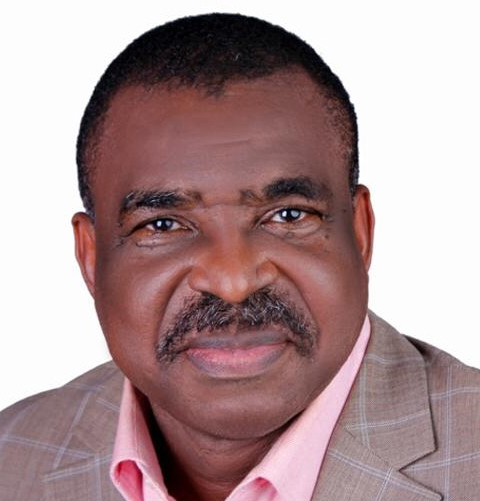





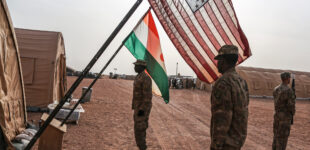
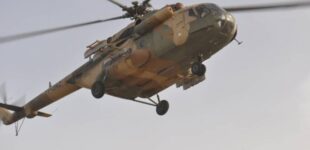
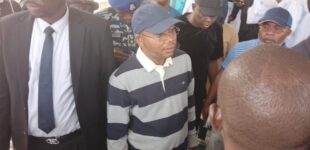
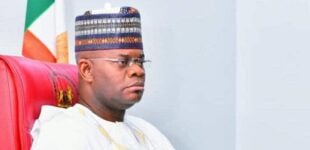

There are no comments at the moment, do you want to add one?
Write a comment